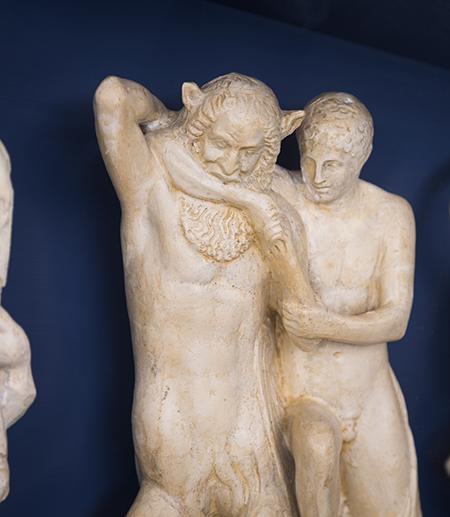Miniature casts of Temple of Zeus take their place in namesake cafe
Looking at the two rows of miniature plaster casts now watching over diners in Klarman Hall’s Temple of Zeus, you’ll notice a few of the figures are missing. But never fear, art detective Annetta Alexandridis (also known as an associate professor of history of art and of classics) is on the case.


